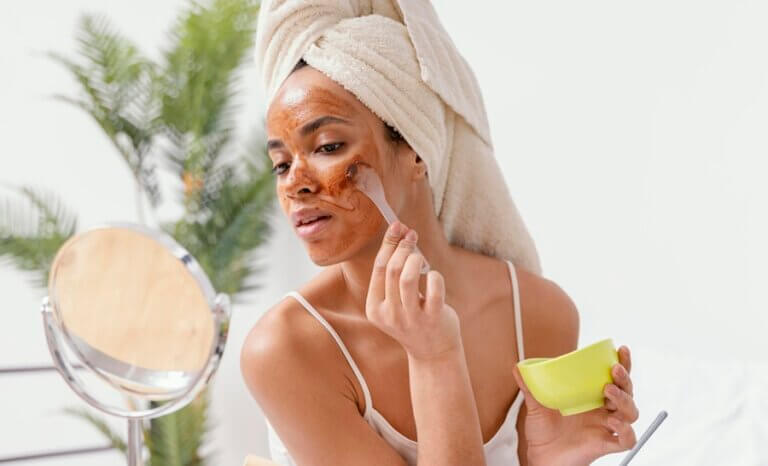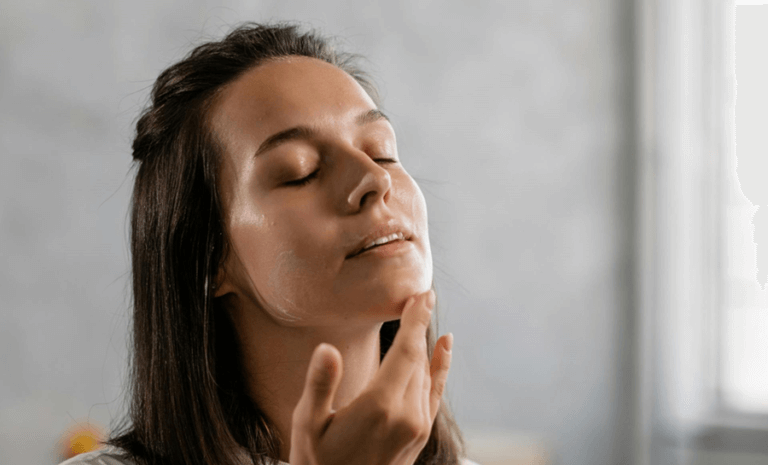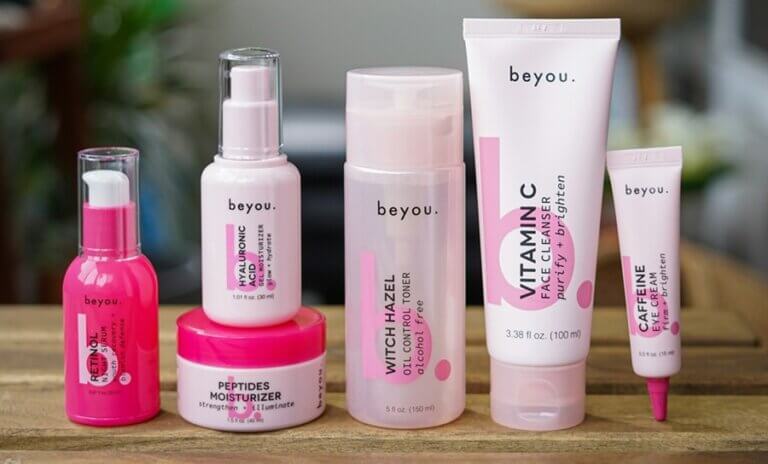This post contains affiliate links. As an Amazon Associate, we earn from qualifying purchases. View our full disclosure here.
Your face is the most sensitive skin on your body. When browsing shelves full of creams, scrubs, masks and more – it’s tempting to grab whatever product promises glowing skin. However, many everyday household ingredients can damage your facial skin severely if applied carelessly.
In this article, we share which substances to avoid applying on your face, why they provoke negative skin reactions, and how to care for your facial skin safely.
Why Face Skin Needs Special Care
The facial skin differs from body skin in containing a higher density of oil glands, blood vessels, and collagen fibers in a thinner dermal layer. Facial skin requires a bit more TLC (tender loving care) compared to the rest of your body for a couple of reasons:
Thinner and More Sensitive: The skin on your face is much thinner than the skin on most other parts of your body. This makes it more prone to irritation from environmental factors like sun, wind, and pollution, as well as harsher skincare products.
Sun Exposure: Compared to other areas, your face gets significantly more exposure to the sun throughout the day. Sun damage is a major contributor to wrinkles, age spots, and even skin cancer, so protection is key.
Sebum Production: Your face has a higher concentration of sebaceous glands, which produce sebum (oil). This can lead to concerns like acne and oily skin, requiring specific cleansing and oil management.
Here are some skincare products you might want to avoid using on your face:
- Harsh Cleansers: Soaps and detergents can strip your face of its natural oils, leaving it dry and irritated. Look for gentle cleansers formulated for facial skin.
- Heavy Lotions: Lotions designed for the body can be too thick and greasy for facial skin. They can clog pores and lead to breakouts.
- Products with Strong Fragrances: Fragrances can irritate sensitive skin. Opt for fragrance-free or unscented products for your face.
- Exfoliating Scrubs (harsh): Daily scrubbing can damage the delicate facial skin. If you want to exfoliate, use a gentle product 1-2 times a week. Chemical exfoliants might be a better option for sensitive skin.
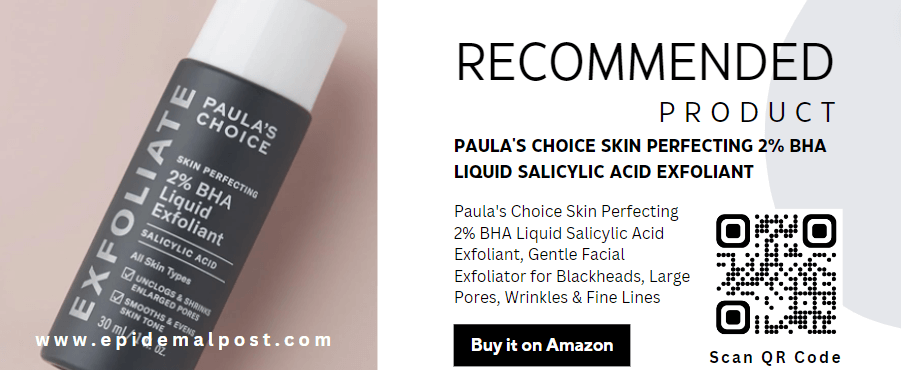
Remember, the best skincare routine is personalized! Consider your specific skin type (dry, oily, sensitive, etc.) and any concerns you have (acne, wrinkles, etc.) when choosing products.
Baking Soda – An Abrasive Mess
Baking soda has gained popularity as a “natural” skin remedy for issues like acne on social media in recent times. But its high pH of 9 can disrupt your skin’s protective acid mantle – causing more harm than good when applied to the face, Potential risks include:
- Disrupts the Balance: Healthy skin has a slightly acidic pH level, like a protective shield. Baking soda is quite alkaline, throwing that balance off. This can irritate your skin and make it more prone to dryness, redness, and breakouts.
- Strips Away the Good Stuff: Your face naturally produces oils to keep it moisturized. Baking soda’s cleansing power can be a little too strong, washing away these beneficial oils and leaving your skin feeling tight and vulnerable.
Here are some alternative products for your skincare routine, depending on your concerns:
For Gentle Cleansing: Look for a cleanser formulated for facial skin. These are usually milder than soaps and won’t disrupt your skin’s natural balance.
For Acne-Prone Skin: Salicylic acid is a common ingredient in cleansers and treatments for acne. It helps unclog pores and reduce inflammation. Benzoyl peroxide is another option, but it can be drying, so start slow and see how your skin reacts.
For Dry Skin: Hyaluronic acid is a superstar ingredient for drawing moisture into the skin. Look for a gentle cleanser with hyaluronic acid or a separate hydrating serum.
For Exfoliation: Skip the harsh scrubs and opt for a chemical exfoliant with AHAs (alpha hydroxy acids) or BHAs (beta hydroxy acids) a few times a week. These gently remove dead skin cells without irritating your face.
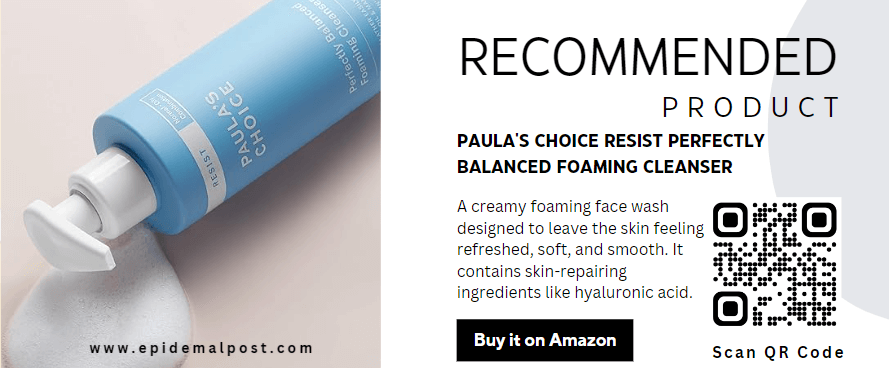
Remember, a dermatologist can assess your skin type and recommend the best products for your specific needs.
Lemon Juice – Too Much Acidity
Lemons contain acids like citric acid and vitamin C – ingredients often used to promote skin renewal. While lemon juice has some potential benefits like brightening and oil control, it’s generally not recommended for direct application on the face due to a few reasons:
Harsh Acidity: Lemon juice has a very low pH level, meaning it’s quite acidic. This acidity can disrupt your skin’s natural, slightly acidic pH balance. This disruption can lead to irritation, redness, dryness, and increased sensitivity.
Sunburn Risk: Lemon juice can make your skin more sensitive to the sun, increasing your risk of sunburn and hyperpigmentation.
Uneven Results: While it might lighten some areas, lemon juice can be quite unpredictable and lead to uneven results or even worsen hyperpigmentation.
Here are some alternative products that can achieve similar results without the risks:
- For Brightening: Look for products with Vitamin C. It’s a gentler and more effective way to brighten your skin tone and reduce hyperpigmentation. Many serums and moisturizers contain stable forms of Vitamin C.
- For Oil Control: There are many oil-free, non-comedogenic (meaning they won’t clog pores) moisturizers formulated for oily skin. These can help manage oil production without stripping your skin’s natural moisture barrier.
- For Exfoliation: Chemical exfoliants with AHAs (like glycolic acid) or BHAs (like salicylic acid) are a great option. They gently remove dead skin cells and promote a more even complexion without the harshness of lemon juice.
- For Acne Spots: Spot treatments with ingredients like benzoyl peroxide or salicylic acid can target blemishes without irritating your entire face.
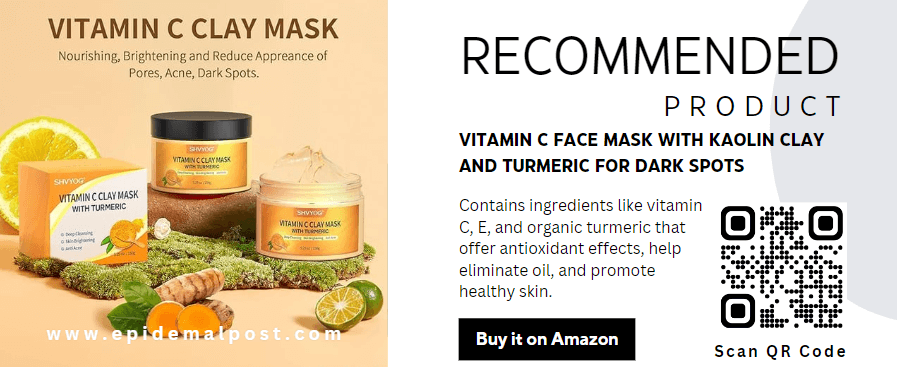
If you’re looking for natural alternatives, consider honey or yogurt masks. Honey has antibacterial properties and yogurt contains lactic acid, a gentle exfoliant. However, it’s always best to do a patch test on your inner arm before applying anything new to your face.
Hydrogen Peroxide – Not For Disinfection
This common antiseptic liquid is used to prevent skin infection after cuts, scrapes or pimple popping. But hydrogen peroxide should be limited to pinned spot application only!
Disrupts Natural Balance: Hydrogen peroxide acts as a disinfectant, but on your face it can disrupt the natural balance of good bacteria and harm healthy skin cells. This disruption can lead to irritation, dryness, and redness.
Short-lived Benefits: Even if it seems to target blemishes initially, hydrogen peroxide’s effects are temporary. It doesn’t address the root cause of acne and can actually worsen breakouts by irritating the skin.
Potential for Burns: Higher concentrations of hydrogen peroxide can cause burns and blistering on the delicate facial skin.
Here are some alternative products that can effectively target your skin concerns:
- For Acne: Benzoyl Peroxide – This is a well-established acne treatment that kills bacteria and reduces inflammation. Opt for a gentle wash or spot treatment with benzoyl peroxide. Salicylic Acid – Another great option for unclogging pores and reducing inflammation associated with acne. Look for cleansers, toners, or leave-on treatments with salicylic acid.
- For Wound Disinfection: If you have a minor cut or scrape on your face, a mild antiseptic like chlorhexidine gluconate solution is a safer option than hydrogen peroxide.
- For Overall Skin Health: Gentle Cleanser – Look for a cleanser formulated for your specific skin type (dry, oily, etc.) that removes dirt and oil without stripping your skin’s natural moisture barrier. Moisturizer – A good moisturizer helps keep your skin hydrated and healthy. Choose an oil-free moisturizer if you have oily skin.
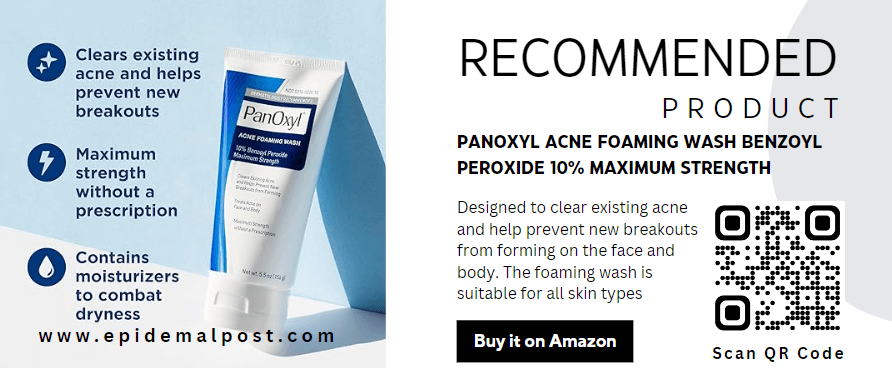
Glue, Wax, Nail Polish – Total Avoidance Needed
Using household glue or wax to create peel-off DIY pore strips seems tempting and fun. All three of these products – glue, wax, and nail polish – are major no-nos for your face, and here’s why:
Glue:
Toxic Ingredients: Many glues contain harsh chemicals that can irritate and damage your skin. These chemicals can cause allergic reactions, redness, and even burns.
Clogged Pores: Glue can easily clog your pores, leading to breakouts and blackheads.
Difficult Removal: Removing dried glue from your face can be very difficult and potentially painful, causing further irritation.
Alternatives for Blackhead Removal:
- Clay Masks: These masks help draw out impurities without irritating your skin. Look for masks formulated for your skin type (oily, dry, etc.).
- Salicylic Acid Products: These gently exfoliate your skin and unclog pores. Opt for cleansers, toners, or leave-on treatments with salicylic acid.
- Blackhead Removal Strips: Use these occasionally, following the instructions carefully to avoid irritation.
Wax:
Burning Risk: Wax for hair removal is designed for a much higher heat tolerance than facial skin. Using it on your face can easily lead to burns.
Skin Tearing: Facial hair is finer than hair on other parts of your body, and waxing can lead to painful tearing of the skin.
Alternatives for Facial Hair Removal:
- Dermaplaning (Professional): A licensed aesthetician uses a sterile blade to gently remove peach fuzz and dead skin cells.
- Facial Razors: Designed specifically for facial hair, these razors provide a safe and gentle way to remove unwanted hair.
- Threading: A professional technique using thread to remove unwanted hair.
Nail Polish:
Harsh Chemicals: Nail polish contains ingredients like formaldehyde and toluene, which can irritate and damage the delicate skin on your face.
Drying Effect: Nail polish can dry out your skin and make it feel tight and uncomfortable.
Difficult Removal: Nail polish remover is also quite harsh and can irritate your facial skin.
Alternatives for Face Paint:
- Theatrical Makeup: This makeup is specifically designed for use on the face and is much gentler than nail polish. Choose hypoallergenic options if you have sensitive skin.
- Face Paint Sticks: These are a fun and easy option for face painting, especially for kids. Look for brands that are non-toxic and water-based.
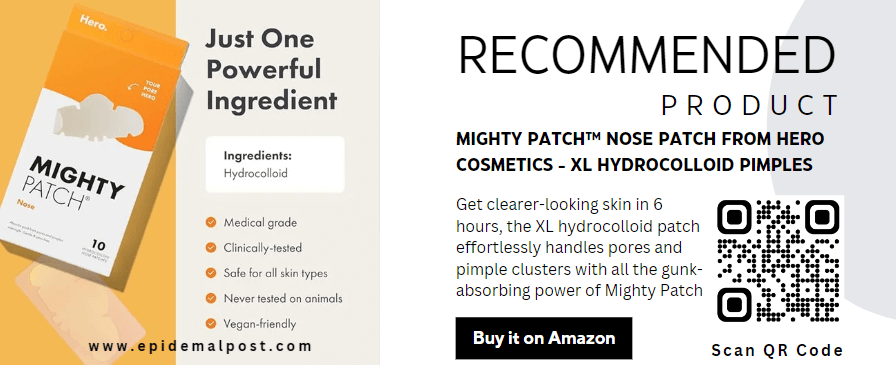
Remember, your face deserves the best! There are plenty of safe and effective alternatives available for your specific needs. Don’t risk damaging your skin with harsh products not meant for facial use
Also read: The Ultimate Nighttime Skincare Routine for Glowing Skin
Takeaway Tips For Your Face
- Treat your facial skin gently given higher sensitivity
- Avoid applying household items directly without dilution
- Spot test products meant for the body before trying on the face
- When attempting DIY remedies, exercise extreme caution
- See a certified dermatologist for tailored guidance on caring for your unique skin type
Your facial skin deserves the highest standard of care for radiant natural beauty to shine through. Be armed with knowledge – and make educated choices!
Frequently Asked Questions
Q: Can I use coconut oil on my face?
A: Coconut oil is often comedogenic, meaning it clogs pores. While some people may not experience breakouts, it is safer to avoid applying pure coconut oil directly to the facial skin. Always patch test natural oils first.
Q: What degree of burns can lemon juice cause?
A: Undiluted lemon juice has an extremely low pH around 2, making burns and chemical injuries likely. Diluted lemon juice may still cause blisters, swelling, redness on facial skin for some people based on sensitivity.
Q: How soon after using hydrogen peroxide on a zit can I apply concealer?
A: Avoid applying makeup products immediately after using hydrogen peroxide. Let the skin heal first for 24-48 hours before covering up acne with concealer to avoid trapping bacteria.
Q: My face feels smoother after using baking soda. Is it still harmful?
A: Baking soda provides temporary smoothness but compromises long term facial skin health over time. The abrasive grittiness causes microtears while increasing skin dryness overall. Seek gentler exfoliants instead.
Q: Where should I patch test skincare products?A: Perform patch tests for new skincare behind your ear or along the neck, never directly on your facial skin. If no redness/reactions show after 48 hours, the product may be safe to gradually introduce on your face.


